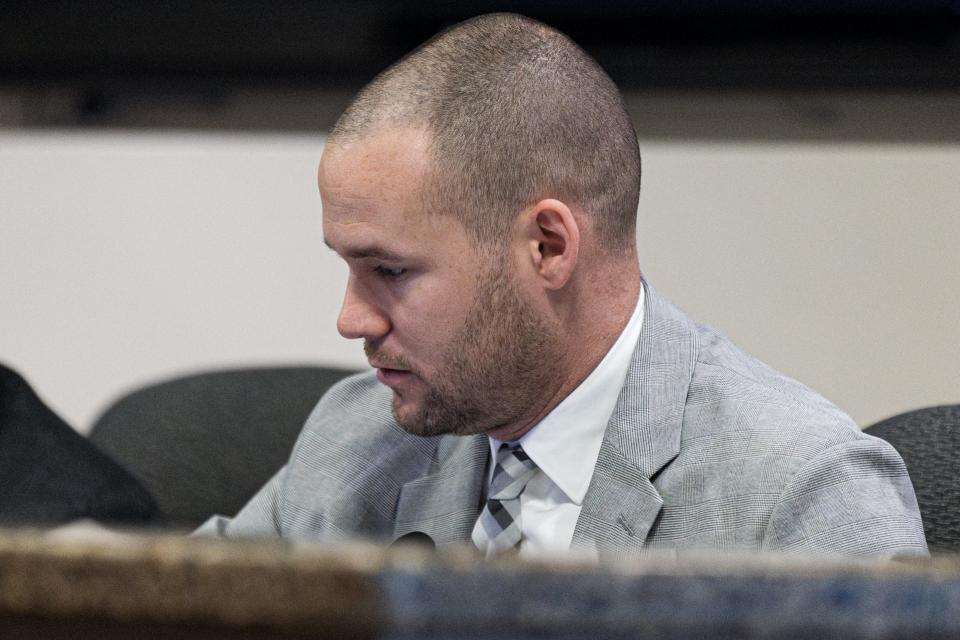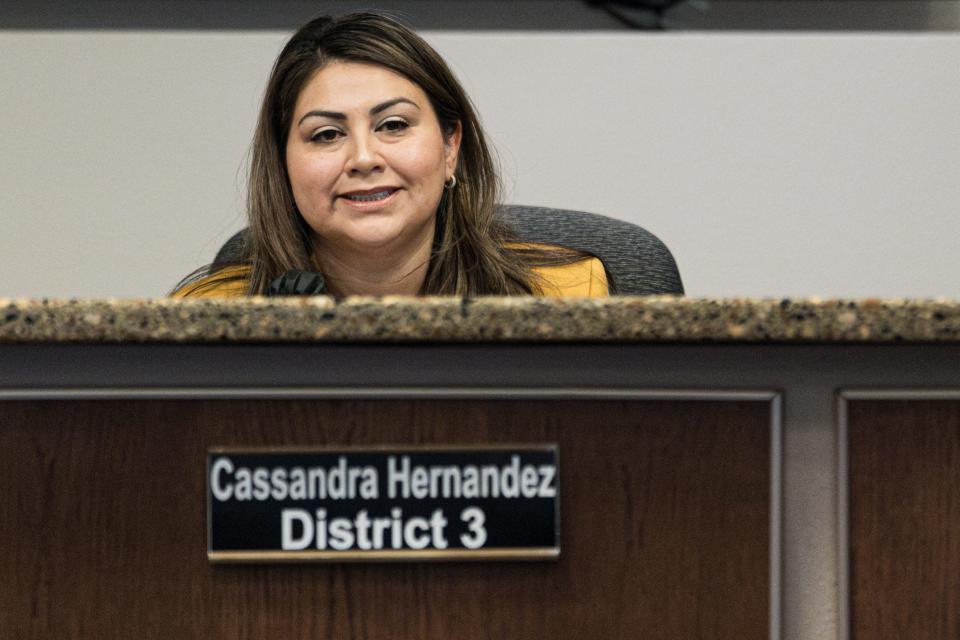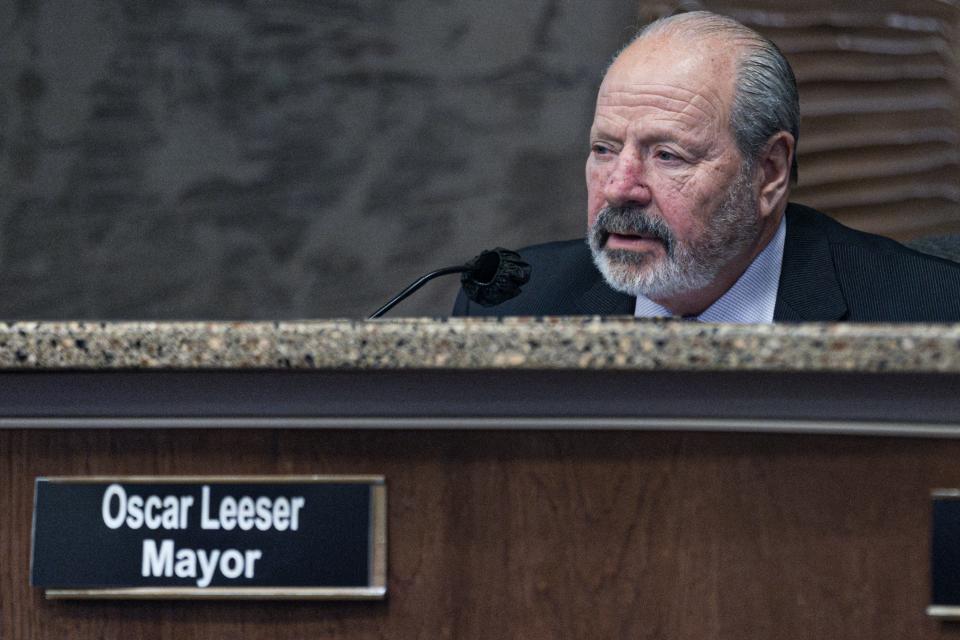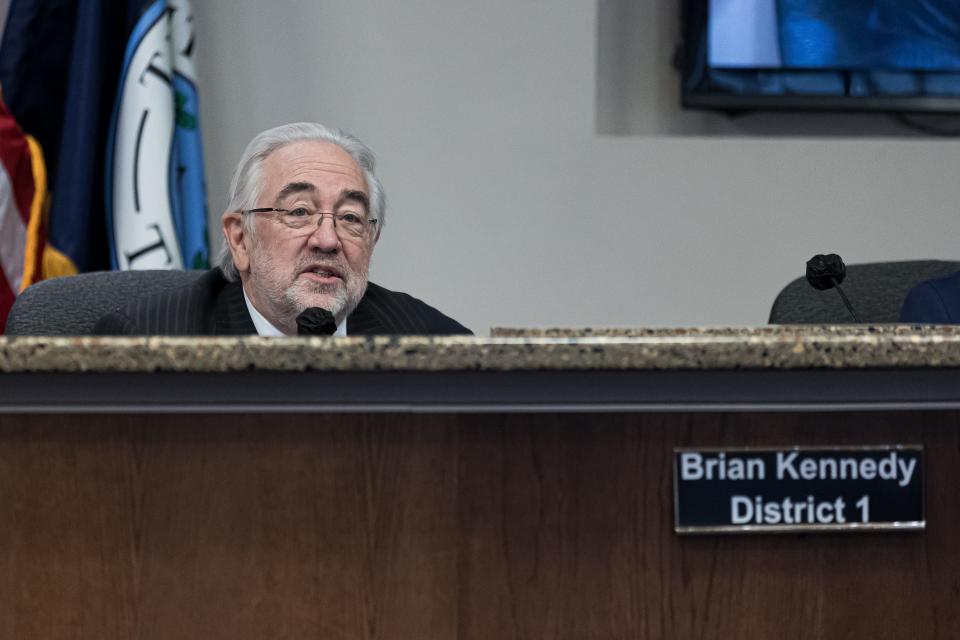El Paso City Council rejects call to pull commercial traffic from Bridge of the Americas
The concerns from residents near the Bridge of the Americas, where idling trucks pump noxious fumes into the air around the Chamizal community, failed to persuade the El Paso City Council to push for removing commercial trucks from the land port.
The City Council voted 6-2 during its Jan. 30 meeting to reject a plan to draft a letter to the General Services Administration calling for the removal of commercial truck traffic as part of the $700 million Bridge of the Americas modernization project.

Only city Reps. Chris Canales and Josh Acevedo, whose districts share the Chamizal community, voted in favor of the letter.
The remainder of the City Council — city Reps. Brian Kennedy, Cassandra Hernandez, Joe Molinar, Isabel Salcido, Art Fierro and Henry Rivera — expressed more concern over the impact removing the truck traffic from the port might have on the Borderland economy and commerce, rather than the impact that leaving the traffic has had on residents.
"When we look at our overall economics, that's when you know what's at stake here," Hernandez said, noting the $110 billion in commerce that passes through the El Paso sector. "Can we have a holistic approach to capitalizing on this commerce while not impacting our communities? I believe we can, but it's going to take a united front."
"I hear your concerns," she added, "but I don't think this is the path forward."

The proposal was brought forth by Canales, who shared several letters from residents of the area detailing their experiences with the pollution that has riddled their community for years.
"It's very important that we listen to the communities on both sides, in District 2 and District 8 ... who are telling us what is best for their community," Canales pleaded.
Acevedo agreed, saying: "We've got to realize the history of what has happened in this area over and over again, how our freeways were built and how those freeways made a lot of 'haves' and 'have-nots.'"
Council members voted against Canales' proposal before the citizens signed up to voice their worries were allowed to speak.
'All we know is the traffic's bad and the air stinks'
Opponents of the proposal insisted that more conversations were needed with stakeholders beyond the residents of the Chamizal community and the surrounding area and worried what impact removing commercial traffic from the port might have.
Mayor Oscar Leeser noted that the north-south freeway was "never designated to be a parking lot," but insisted that more research needed to be done before sending a letter to the GSA.

"It's more than just writing a letter ... let's sit down with our partners on the other side of the border, let's sit down with the business community, and figure out what we can do," he said.
"If we really kind of work with the stakeholders to put something behind (the letter), a study of some sort that really explains why we want to this, I think we have a better opportunity of this moving forward," Leeser continued. "I think it's a good start, a good idea, but at the end of the day, there's a lot of things we need to do before we write a letter to GSA."
But Canales noted that talks with Mexican officials have already begun. Additionally, he noted an ongoing study is currently in the works, both through the federal National Environmental Policy Act process and a study from El Paso's Metropolitan Planning Organization, which he believes will support many of the claims being made by residents.
"It's very plain to me," Canales said. "I think it will bear out what we're hearing from the neighborhoods in terms of the idle times at the Bridge of the Americas and the environmental impacts ... they have on these neighborhoods."
For Kennedy, there were too many unanswered questions: What is the process for moving traffic to another port? Will moving the traffic create additional delays? What will happen to the cost of moving goods across the border? How will removing commercial traffic from the port affect El Paso's tax base?

"We don't know," he said. "All we know is traffic's bad and the air stinks."
For Molinar, removing commercial traffic from the Bridge of the Americas and rerouting it through the Tornillo, Santa Teresa or Zaragoza ports would only be displacing the traffic, not eliminating it.
"This is a very serious subject," Molinar said. "But writing a letter, it might be the catalyst, but I'm not sure that it's going to be the ultimate solution."
But again, Canales noted that the impact of commercial truck traffic through Tornillo, population around 1,500, versus the Chamizal community, population over 7,000, would be tremendously different. Additionally, he noted that findings from both the United States and Mexico show that capacity could be increased at both the Tornillo and Santa Teresa ports.
"Yes, a truck idling is a truck idling," Canales said, "but the impact it has on people in different areas is wildly different."
This article originally appeared on El Paso Times: El Paso City Council rejects land port proposal before residents speak

